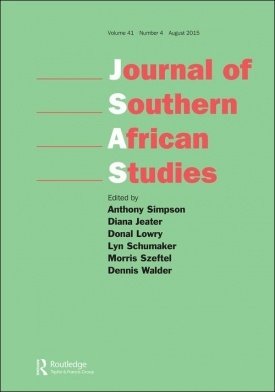Reproducing Portuguese Rural Villages in Africa: Agricultural Science, Ideology and Empire
- Autoria
- Ano
- 2016
- Periódico
Journal of Southern African Studies, Vol. 42, Nº 2
- Nº de Páginas
- 267-281

Abstract
This article examines the political and ideological uses of agronomic research, focusing on state-directed rural white settlements in Angola. Implemented ‘against the tide’, in the mid-1950s, with Angola’s African anti-colonial movement already under way, these schemes contained numerous contradictions. Under a modernising agenda, the Estado Novodictatorship created the colonatos of Cela and Cunene, with the expressed purpose of reproducing Portuguese rural villages in Africa, settling poor Portuguese peasants and perpetuating colonial rule. Drawing on a range of primary sources from Portuguese colonial and scientific archives and the literature on Angola, I analyse the relationship between policymakers and the agricultural engineers mobilised to study the soils and its agricultural suitability in the regions chosen for the colonatos. I show that several experts criticised state-sponsored development of white rural settlements and exposed the policy’s drawbacks. I also place this particular example within the context of the existing literature on the history of science and development in post-war Africa. I will argue that the Portuguese version of the ‘developmentalist’ colonial state was burdened with an anti-progressive ideology that criticised industrialisation, urbanisation and proletarianisation, ignored technical and scientific conclusions, and despised settlers’ aspirations of upward mobility, seeing such aspirations as potentially politically disruptive. According to this model, the ideal type of white settler – modest, rooted in the land, earning only enough to get by – would be emulated by the African peasant, ensuring both social peace and colonial order. The failure of this experiment illustrates the (dis)connection between science and ideology in the last years of the Portuguese Empire, and the social and economic cost of their disengagement.